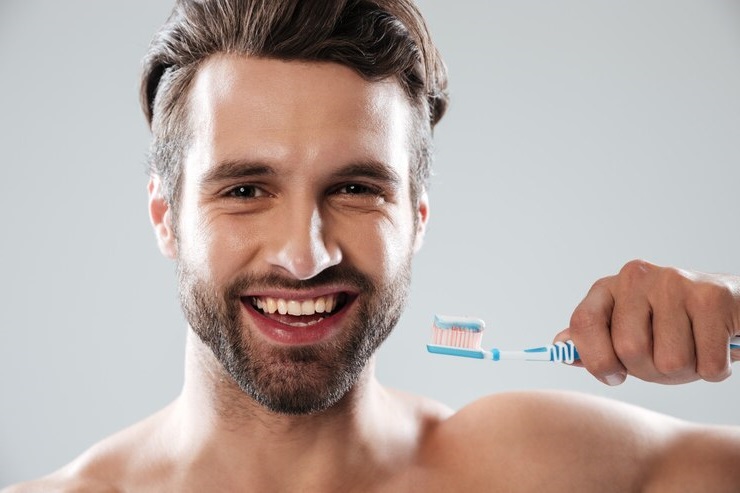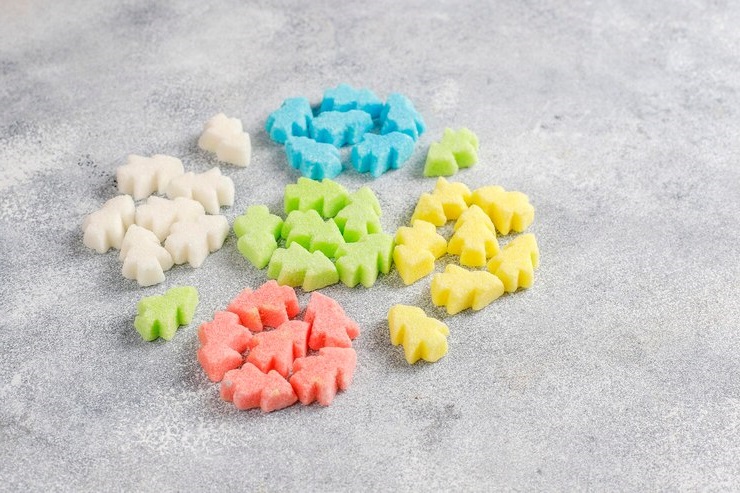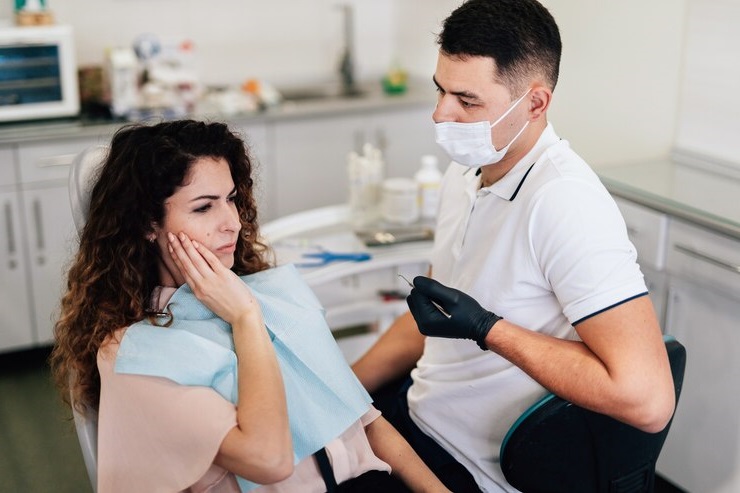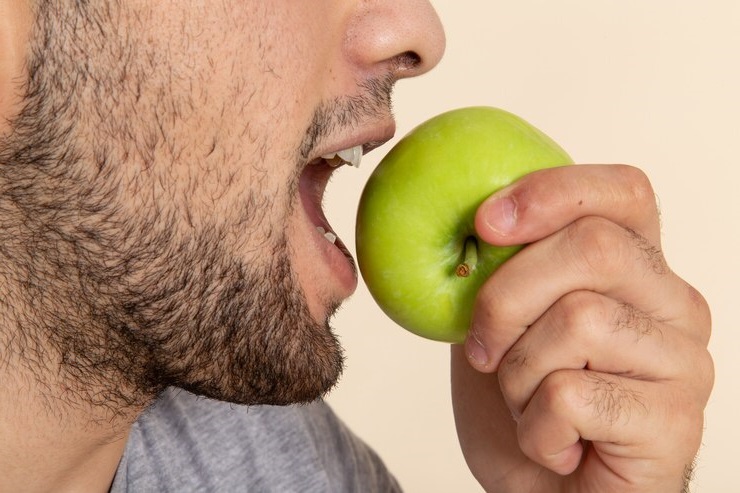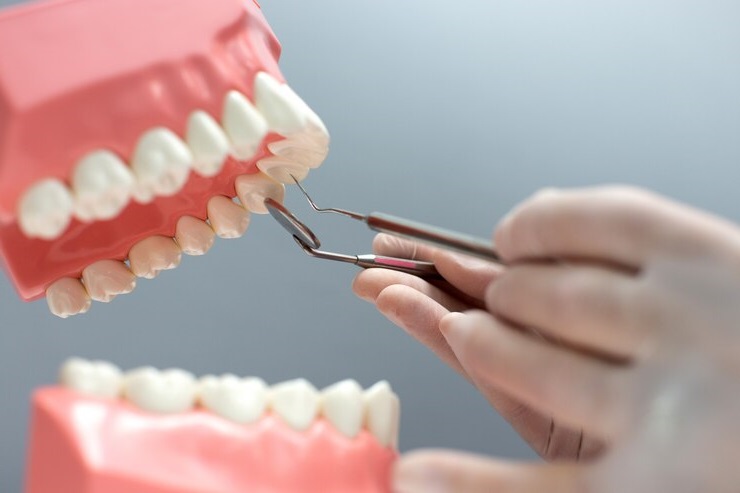
Have you ever wondered if probiotics can stop tooth decay? With the growing interest in natural health remedies and the well-known benefits of probiotics for gut health, it’s no surprise that people are curious about their potential role in dental health. Understanding whether probiotics can stop tooth decay can help you take better care of your teeth and maintain a healthier smile.
Understanding Tooth Decay
Tooth decay, also known as dental caries or cavities, occurs when the hard surface of your teeth is damaged by acids produced by bacteria in your mouth. These acids can erode the enamel, leading to cavities, pain, and even tooth loss if left untreated. Preventing tooth decay involves maintaining good oral hygiene, reducing sugar intake, and possibly incorporating probiotics into your routine to stop tooth decay.
The Role of Bacteria in Tooth Decay
The mouth is home to millions of bacteria, some of which are beneficial, while others can cause harm. Harmful bacteria, such as Streptococcus mutans, feed on sugars and produce acids that can erode tooth enamel. Probiotics can help balance the oral microbiome by increasing the number of beneficial bacteria, which can compete with and reduce the harmful bacteria responsible for tooth decay.
How Probiotics Work
Probiotics are live microorganisms that provide health benefits when consumed in adequate amounts. They are commonly found in fermented foods and can also be taken as supplements. Probiotics help maintain a healthy balance of bacteria in your gut and mouth, which is crucial for overall health. But can probiotics stop tooth decay? Let’s explore how they work.
Balancing the Oral Microbiome
The oral microbiome is the community of microorganisms living in your mouth. A healthy oral microbiome contains a balance of beneficial and harmful bacteria. When this balance is disrupted, harmful bacteria can overgrow, leading to tooth decay and other oral health issues. Probiotics can help restore and maintain this balance, potentially reducing the risk of tooth decay.
Reducing Harmful Bacteria
Certain strains of probiotics have been shown to inhibit the growth of harmful bacteria like Streptococcus mutans. By reducing the number of these bacteria, probiotics can help decrease the production of acid in the mouth, which is a major cause of tooth decay. This is one way that probiotics can stop tooth decay.
Enhancing Immune Response
Probiotics can also enhance the immune response in the oral cavity. A stronger immune response can help your body fight off harmful bacteria more effectively, reducing the risk of infections and tooth decay. This immune-boosting effect is another reason why probiotics can stop tooth decay.
Benefits of Probiotics for Dental Health
Incorporating probiotics into your oral care routine can provide several benefits for your dental health. Understanding these benefits can help you appreciate the potential of probiotics to stop tooth decay and improve your overall oral hygiene.
Preventing Plaque Buildup
Plaque is a sticky film of bacteria that forms on your teeth and gums. If not removed, it can harden into tartar and lead to tooth decay and gum disease. Probiotics can help prevent plaque buildup by reducing the number of harmful bacteria in your mouth. This makes it less likely for plaque to form and cause dental problems.
How Plaque Forms
Plaque forms when bacteria in your mouth mix with sugary or starchy foods. The bacteria feed on these sugars and produce acids that can damage your teeth. Over time, plaque can harden into tartar, which is more difficult to remove and can cause more serious dental issues. By incorporating probiotics into your routine, you can help reduce the formation of plaque and its associated risks.
Improving Gum Health
Healthy gums are essential for maintaining strong teeth and preventing tooth decay. Probiotics can help improve gum health by reducing inflammation and the number of harmful bacteria that can cause gum disease. This can lead to healthier gums and a lower risk of tooth decay.
Signs of Gum Disease
Gum disease, also known as periodontal disease, can range from mild gingivitis to more severe periodontitis. Signs of gum disease include red, swollen, or bleeding gums, bad breath, and loose teeth. By using probiotics to improve gum health, you can reduce the risk of developing gum disease and its complications.
Freshening Breath
Bad breath, or halitosis, is often caused by an overgrowth of harmful bacteria in the mouth. Probiotics can help freshen breath by reducing the number of these bacteria and promoting a healthier oral microbiome. This can lead to a fresher, more pleasant breath and improved overall oral hygiene.
Causes of Bad Breath
Bad breath can be caused by various factors, including poor oral hygiene, dry mouth, and certain foods. By incorporating probiotics into your routine, you can help address some of the underlying causes of bad breath and enjoy a fresher mouth.
Scientific Evidence on Probiotics and Tooth Decay
While there is a growing body of evidence supporting the use of probiotics for gut health, what does the research say about their ability to stop tooth decay? Let’s look at some scientific studies and findings.
Studies on Probiotics and Oral Health
Several studies have investigated the effects of probiotics on oral health. These studies have shown that certain strains of probiotics can reduce the levels of harmful bacteria in the mouth, improve gum health, and decrease the risk of tooth decay.
Lactobacillus reuteri
One study found that Lactobacillus reuteri, a common probiotic strain, was effective in reducing the levels of Streptococcus mutans in the mouth. This reduction in harmful bacteria was associated with a decreased risk of tooth decay, suggesting that probiotics can stop tooth decay by targeting these bacteria.
Bifidobacterium
Another study showed that Bifidobacterium, a well-known probiotic strain, can help improve oral health by reducing inflammation and promoting a healthier balance of bacteria in the mouth. This strain’s ability to support gum health and reduce harmful bacteria makes it a potential candidate for preventing tooth decay.
Limitations of Current Research
While the research on probiotics and tooth decay is promising, it is still in its early stages. More studies are needed to fully understand the mechanisms by which probiotics can stop tooth decay and to identify the most effective strains and dosages. However, the existing evidence suggests that probiotics can play a beneficial role in maintaining oral health.
Choosing the Right Probiotic for Dental Health
With so many probiotic products available, how do you choose the right one to stop tooth decay? Here are some factors to consider when selecting a probiotic for dental health.
Strains and CFU Count
Different probiotic strains offer different benefits, and the CFU count indicates the potency of the product. When choosing a probiotic for dental health, look for products that contain strains like Lactobacillus reuteri and Bifidobacterium. A higher CFU count can also indicate a more potent product.
Recommended Strains for Dental Health
- Lactobacillus reuteri: Known for its ability to reduce harmful bacteria in the mouth.
- Bifidobacterium: Supports gum health and reduces inflammation.
- Streptococcus salivarius: A beneficial strain for improving oral health and freshening breath.
Product Quality
The quality of a probiotic product is crucial for its effectiveness. Look for products that are manufactured by reputable companies and have been tested for potency and purity. Reading reviews and seeking recommendations from healthcare professionals can also help you find a high-quality probiotic.
Delivery Method
Probiotics for dental health can come in various forms, including capsules, chewable tablets, lozenges, and powders. Choosing a delivery method that you find convenient and easy to incorporate into your daily routine can help ensure you get the most benefit from the probiotic.
How to Incorporate Probiotics into Your Oral Care Routine
To maximize the benefits of probiotics for dental health, it’s important to incorporate them into your daily oral care routine. Here are some tips on how to do this effectively.
Daily Brushing and Flossing
Maintaining good oral hygiene is essential for preventing tooth decay. Brush your teeth at least twice a day and floss daily to remove plaque and food particles. Adding a probiotic to this routine can enhance its effectiveness.
Steps for Effective Brushing
- Choose the Right Toothbrush: Use a soft-bristled toothbrush to avoid damaging your enamel and gums.
- Use Fluoride Toothpaste: Fluoride helps strengthen enamel and protect against cavities.
- Brush Thoroughly: Brush all surfaces of your teeth, including the fronts, backs, and chewing surfaces.
- Spit and Rinse: Spit out the toothpaste and rinse your mouth with water.
Using Probiotic-Infused Oral Care Products
Some oral care products, such as toothpaste and mouthwash, are infused with probiotics. Using these products can help deliver beneficial bacteria directly to your mouth, supporting oral health and helping to stop tooth decay.
Types of Probiotic-Infused Products
- Probiotic Toothpaste: Contains beneficial bacteria to support a healthy oral microbiome.
- Probiotic Mouthwash: Helps reduce harmful bacteria and freshen breath.
- Probiotic Chewables: Convenient way to deliver probiotics to your mouth and support oral health.
Taking Probiotic Supplements
In addition to using probiotic-infused oral care products, you can take probiotic supplements to support your dental health. Look for supplements that contain strains known to benefit oral health, such as Lactobacillus reuteri and Bifidobacterium.
How to Choose a Probiotic Supplement
- Check the Strains: Ensure the supplement contains strains beneficial for dental health.
- Look at the CFU Count: A higher CFU count indicates a more potent product.
- Read Reviews: Look for supplements with positive reviews and testimonials.
Real-Life Experiences with Probiotics for Dental Health
Hearing about real-life experiences can provide valuable insights into how probiotics can help stop tooth decay. Here are some stories from people who have benefited from incorporating probiotics into their oral care routine.
John’s Success Story
John struggled with frequent cavities and gum inflammation. After his dentist recommended a probiotic supplement containing Lactobacillus reuteri, he noticed significant improvements. “I’ve had fewer cavities, and my gums are healthier. I didn’t realize probiotics could stop tooth decay until I tried them,” he says.
Sarah’s Fresh Breath Solution
Sarah dealt with chronic bad breath, which affected her confidence. She started using a probiotic mouthwash and noticed a remarkable difference. “My breath is much fresher, and I feel more confident. Probiotics really helped stop tooth decay and improve my overall oral health,” she shares.
Emma’s Gum Health Improvement
Emma had issues with gum disease and was looking for a natural solution. She began using a probiotic toothpaste and saw positive results. “My gums are less inflamed, and I haven’t had any new cavities. Probiotics can stop tooth decay and improve gum health,” she explains.
Frequently Asked Questions About Probiotics and Tooth Decay
When it comes to using probiotics to stop tooth decay, people often have many questions. Here are some frequently asked questions and their answers to help you understand the benefits of probiotics for dental health.
Are Probiotics Safe for Everyone?
In general, probiotics are safe for most people. However, individuals with compromised immune systems or serious health conditions should consult a healthcare professional before taking probiotics. The best probiotic for you will depend on your specific health needs and any underlying conditions.
How Long Does It Take to See Results?
The time it takes to see results from probiotics can vary depending on the individual and the specific health concern. Some people may notice improvements within a few days, while others may take several weeks to experience the full benefits. Consistency is key when taking probiotics to stop tooth decay.
Can Probiotics Replace Regular Oral Care?
While probiotics can provide significant benefits for dental health, they should not replace regular oral care practices like brushing and flossing. Instead, probiotics should be used as a complementary measure to enhance your overall oral hygiene routine.
Can Probiotics Help with Other Oral Health Issues?
Yes, probiotics can help with various oral health issues, including gum disease, bad breath, and oral infections. By promoting a healthy balance of bacteria in your mouth, probiotics can support overall oral health and prevent a range of dental problems.
Should I Take Probiotics with Antibiotics?
Antibiotics can disrupt the balance of good and bad bacteria in your gut and mouth, leading to digestive and oral health issues. Taking probiotics alongside antibiotics can help prevent these side effects by restoring the balance of good bacteria. The best probiotic for this purpose is often Saccharomyces boulardii, which is resistant to antibiotics.
Conclusion
In conclusion, understanding whether probiotics can stop tooth decay can help you make informed decisions about your oral health. By incorporating probiotics into your daily routine, you can support a healthy balance of bacteria in your mouth, reduce harmful bacteria, and enhance your immune response.
While more research is needed to fully understand the mechanisms by which probiotics can stop tooth decay, the existing evidence suggests that they can play a beneficial role in maintaining oral health. Remember, the best approach to preventing tooth decay includes a combination of good oral hygiene practices, a healthy diet, and the right probiotic supplementation.
